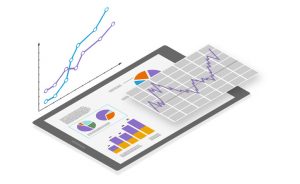
Your 5-Point Checklist for Online Marketing Success
July 12, 2022Social media has transformed the way we connect, communicate, and consume information. With billions of active users across various platforms, it has become a powerful tool for businesses to reach their target audience and enhance their digital marketing efforts.
In this article, we will explore the impact of social media on digital marketing and how you can leverage its potential to boost your business. So, let’s dive in!
Building Brand Awareness through Social Media
Social media platforms provide an ideal avenue to showcase your brand’s personality, values, and offerings. By consistently sharing high-quality content, you can build brand awareness and attract the attention of your target audience. Engaging visuals, informative posts, and captivating videos can help create a lasting impression and generate interest in your business.
Increasing Website Traffic
One of the primary goals of digital marketing is to drive traffic to your website. Social media acts as a powerful traffic driver by directing users to your website through strategically placed links and compelling call-to-action (CTA) buttons. By optimizing your social media profiles and sharing valuable content, you can entice users to click through to your website, increasing the chances of conversions and sales.
Expanding Reach and Engagement
Social media allows you to reach a broader audience beyond geographical boundaries. With the right targeting options and content strategy, you can connect with potential customers who might have otherwise been inaccessible. Additionally, social media fosters engagement through likes, comments, shares, and direct messaging. It provides an opportunity to interact with your audience, address their queries, and build a loyal community around your brand.
Harnessing the Power of User-Generated Content
User-generated content (UGC) has gained significant traction in recent years. It refers to content created by your customers or followers, such as reviews, testimonials, and user-submitted posts. Sharing UGC on social media can strengthen your brand’s credibility and authenticity. It also encourages your audience to actively participate and engage with your brand, creating a sense of belonging and fostering trust.
Leveraging Influencer Marketing
Influencer marketing has become a popular strategy for brands to tap into the followership and influence of social media personalities. By collaborating with relevant influencers, you can leverage their reach and credibility to promote your products or services. Influencers can help amplify your brand’s message, increase brand awareness, and drive conversions among their dedicated fan base.
Enhancing Customer Relationship and Support
Social media platforms provide an excellent avenue for building and nurturing relationships with your customers. Through regular interactions, you can gain valuable insights into their preferences, needs, and feedback. Responding promptly to customer inquiries, comments, and messages shows that you value their input and are dedicated to providing exceptional customer support.
Additionally, social media allows you to proactively engage with your audience by sharing updates, conducting polls, and running contests, fostering a sense of community and loyalty.
Social Media Advertising and Targeting
Social media platforms offer robust advertising features that enable precise targeting of your desired audience. By utilizing demographic, interest-based, and behavioral targeting options, you can ensure that your ads reach the right people who are most likely to be interested in your products or services. Social media advertising allows for budget flexibility, measurable results, and the ability to optimize campaigns in real-time, maximizing your return on investment (ROI).
Tracking and Analyzing Social Media Metrics
Measuring the effectiveness of your social media efforts is crucial for refining your digital marketing strategies. Social media platforms provide comprehensive analytics and insights that allow you to track key metrics such as reach, engagement, click-through rates, and conversions. By analyzing these metrics, you can identify what is working well and make data-driven decisions to optimize your future campaigns.
Integrating Social Media with Other Marketing Channels
To maximize the impact of your digital marketing, it is essential to integrate social media with other marketing channels. By cross-promoting your social media profiles on your website, email newsletters, and other marketing materials, you can expand your reach and encourage your audience to connect with you on social media. Additionally, incorporating social sharing buttons on your website and blog posts enables visitors to easily share your content with their own social networks, increasing your brand’s visibility.
Overcoming Challenges and Staying Relevant
While social media offers immense opportunities, it also presents challenges. The digital landscape is ever-evolving, and staying relevant requires continuous adaptation. Keeping up with algorithm changes, emerging trends, and evolving consumer behaviors is crucial. Consistency, creativity, and experimentation are key to overcoming challenges and maintaining a strong presence on social media.
The Future of Social Media in Digital Marketing
As technology continues to advance, the future of social media in digital marketing looks promising. The integration of augmented reality (AR), virtual reality (VR), and artificial intelligence (AI) will provide innovative ways to engage with customers and personalize their experiences. Furthermore, the rise of video content, live streaming, and short-form content formats will continue to shape the social media landscape.
FAQs (Frequently Asked Questions)
Q: How often should I post on social media for optimal results?
A: The ideal posting frequency varies depending on the platform and your audience. However, consistency is key. Aim for regular and relevant content updates without overwhelming your audience.
Q: Can social media help small businesses grow?
A: Absolutely! Social media provides cost-effective marketing opportunities for small businesses to reach a wider audience, build brand awareness, and engage with customers on a personal level.
Q: Is it necessary to be on every social media platform?
A: Not necessarily. It’s important to identify the platforms where your target audience is most active and focus your efforts there. Quality over quantity is crucial.
Q: How can I measure the effectiveness of my social media campaigns?
A: Social media platforms offer robust analytics tools that provide insights into key metrics such as reach, engagement, and conversions. Utilize these tools to track and measure the performance of your campaigns.
Q: Can social media replace other marketing channels?
A: While social media is a powerful marketing channel, it should be integrated with other channels for a comprehensive and effective marketing strategy. Each channel serves a unique purpose and can complement one another.
Q: How can I effectively engage with my audience on social media?
A: Actively respond to comments, messages, and mentions from your audience. Encourage conversations, ask questions, and seek feedback. Show genuine interest and provide valuable content to keep your audience engaged.
By leveraging the potential of social media, businesses can significantly boost their digital marketing efforts. From building brand awareness to fostering customer relationships, social media provides a platform for businesses to connect, engage, and influence their target audience. Embrace the power of social media, adapt to the evolving landscape, and stay ahead of the competition in the digital marketing realm.
Remember, social media is not just a trend but a fundamental aspect of modern marketing. By utilizing its capabilities effectively, businesses can propel their digital marketing strategies to new heights and achieve remarkable success in today’s digital age.


